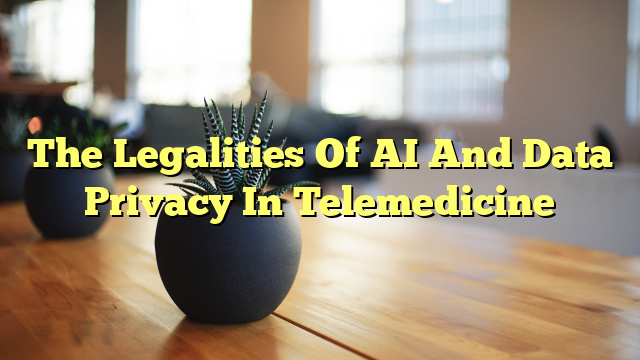Table of Contents
Legal Privacy and Ethical Considerations of Artificial Intelligence
Artificial intelligence (AI) has revolutionized various industries, including healthcare. However, it also raises important legal, privacy, and ethical considerations. The use of AI in telemedicine requires careful attention to ensure the protection of patient privacy and compliance with relevant laws and regulations.
Privacy Laws and Regulations
Privacy laws such as the Health Insurance Portability and Accountability Act (HIPAA) in the United States and the General Data Protection Regulation (GDPR) in the European Union play a crucial role in safeguarding patient privacy. Organizations utilizing AI in telemedicine must comply with these laws and implement appropriate security measures to protect patient data.
Ethical Considerations
AI algorithms must be developed and used ethically to avoid biases and discrimination. Transparency in AI decision-making processes is essential to ensure fairness and accountability. Additionally, healthcare providers must obtain informed consent from patients regarding the use of AI in their care.
Liability and Accountability
When AI is involved in medical decision-making, questions of liability and accountability arise. It is important to establish clear guidelines and protocols for the use of AI in telemedicine to determine who is responsible in case of errors or adverse outcomes.
Privacy Protection in Telehealth
Telehealth, which involves the remote delivery of healthcare services, presents unique privacy challenges. To protect patient privacy in telehealth, several measures can be implemented:
Secure Communication Channels
Telehealth platforms should use secure communication channels, such as encrypted video conferencing, to ensure the confidentiality of patient information during virtual consultations.
Data Encryption
All patient data transmitted or stored during telehealth sessions should be encrypted to prevent unauthorized access.
User Authentication
Strong user authentication protocols, such as two-factor authentication, should be implemented to verify the identity of healthcare providers and patients participating in telehealth sessions.
Data Minimization
Only necessary patient data should be collected and stored during telehealth sessions, minimizing the risk of data breaches.
Data Privacy Issues with AI
The use of AI in healthcare generates vast amounts of data, raising concerns about data privacy. Some key data privacy issues with AI include:
Data Security
AI systems must have robust security measures in place to protect patient data from unauthorized access, breaches, and cyberattacks.
Data Sharing
AI algorithms may require access to large datasets for training and improvement. However, the sharing of patient data must be done in compliance with privacy laws and regulations.
Data Anonymization
Patient data used in AI algorithms should be anonymized to protect individual privacy. Personal identifiers should be removed or encrypted to prevent re-identification.
Role of AI in Telemedicine
AI plays a significant role in enhancing telemedicine practices. Some key areas where AI is utilized include:
Diagnostic Assistance
AI algorithms can analyze medical images, such as X-rays and MRIs, to assist healthcare providers in diagnosing conditions accurately and efficiently.
Remote Monitoring
AI-powered devices can collect and analyze patient data, such as vital signs and symptoms, remotely. This

